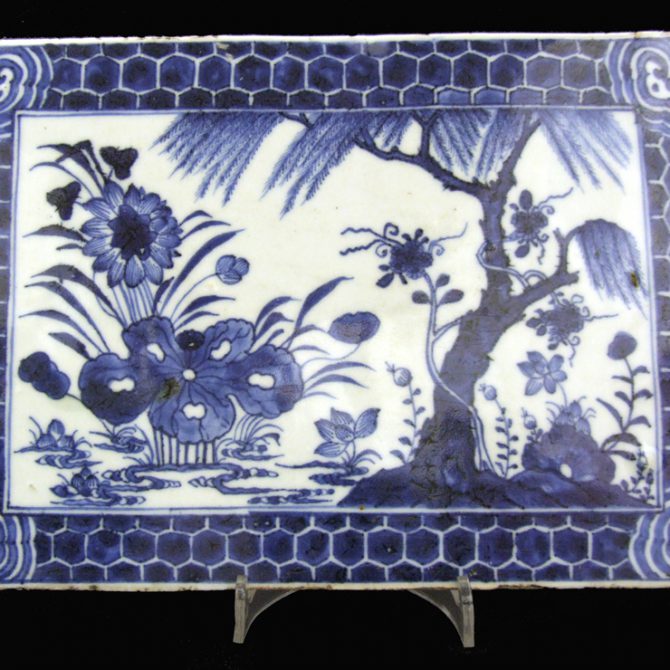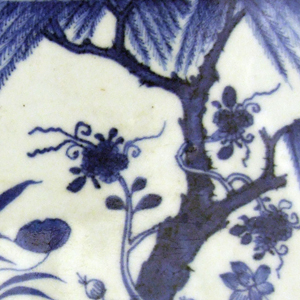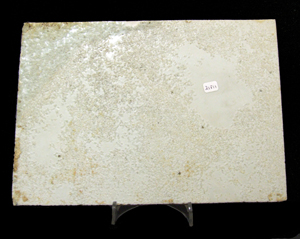
QIANLONG 1736 – 1795. Chinese Export Porcelain.
An 18th Century Chinese Export Porcelain Tile c.1750. The Rectangular Tile is Decorated with a Creeper Growing into a Willow Tree, with Lotus in a Pond to the Left. The Border of a Diaper pattern with the Corners of Ruyi Form.
SOLD
- Condition
- Chip to left side (visible in the photograph) now repaired.
- Size
- 24.2 x 17 x 1.3 cm (9 1/2 x 6 3/4 x 1/2 inch )
- Provenance
- N/A
- Stock number
- 21811
Information
Ruyi-Head and Lingzhi Fungus Designs:
The Ruyi scepter has been an important symbol in China since at least Western Han times, its origins are still unclear, it might be Chinese but it could equally well be a Buddhist import. The Taoists believe the Ruyi evolved from the Lingzhi fungus, their symbol of immortality. Indeed the Ruyi-Head, that is the top of the scepter which curves back over the main body is often modelled as a Lingzhi fungus cloud form. Lingzhi is the immorality fungus and Ruyi means "may you have".

